Round water tank level sensor
-
@tango156157 no worries. Declare waterAvail as a float:
float waterAvail;Then when calling set on msgVolume just add a second argument, an int with the number of decimal places you want (I've used 3 which will get you to millilitre precision):
send(msgVolume.set(waterAvail, 3)); -
@tango156157 no worries. Declare waterAvail as a float:
float waterAvail;Then when calling set on msgVolume just add a second argument, an int with the number of decimal places you want (I've used 3 which will get you to millilitre precision):
send(msgVolume.set(waterAvail, 3));@mwalker Excellent, your suggestion worked perfectly. Many Thanks Sir...you are a STAR
-
Nearly got it all mounted today. Just got to cut a hole in the tank now for the transducer.
The tank is on a lower level than my lightning sensor node (which is the repeater this node must use) so I ended up mounting it on a 900mm long piece of 25mm conduit. It worked out ok with the node mounted on top all the cabling is now running inside and protected from the elements.
The transducer and its cabling are all enclosed as well
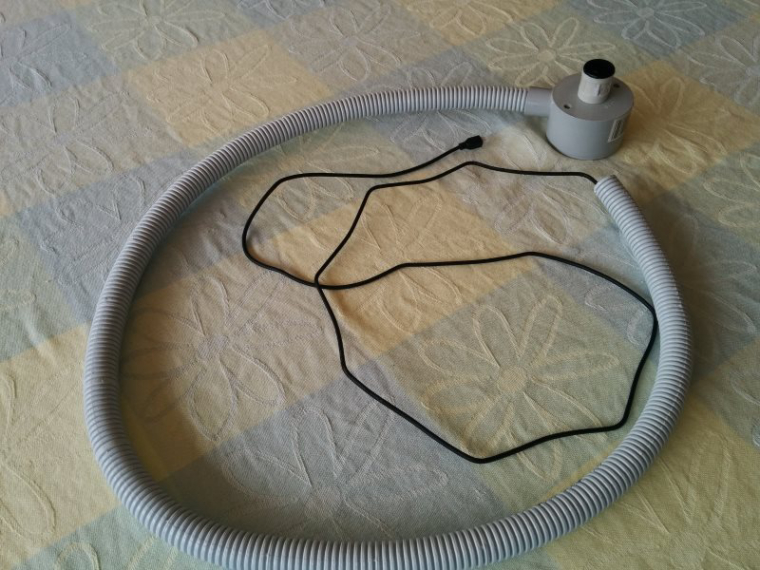
The node assembly
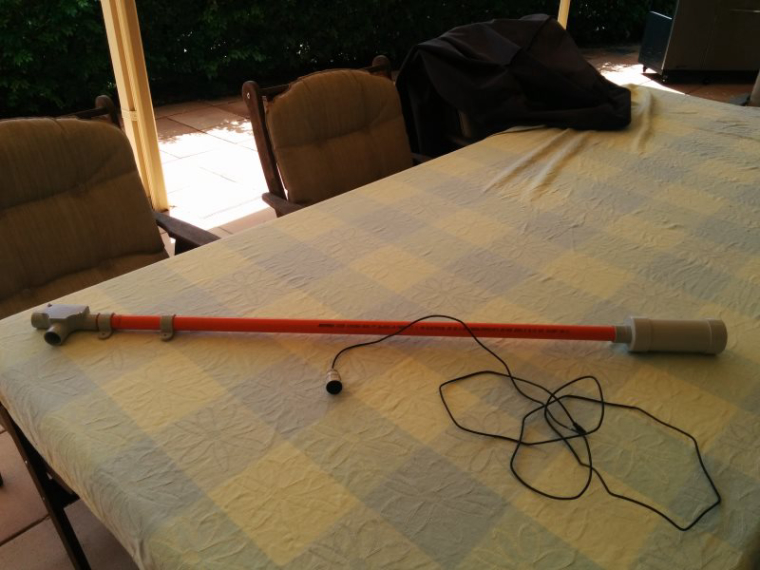
And finally mounted on the tank
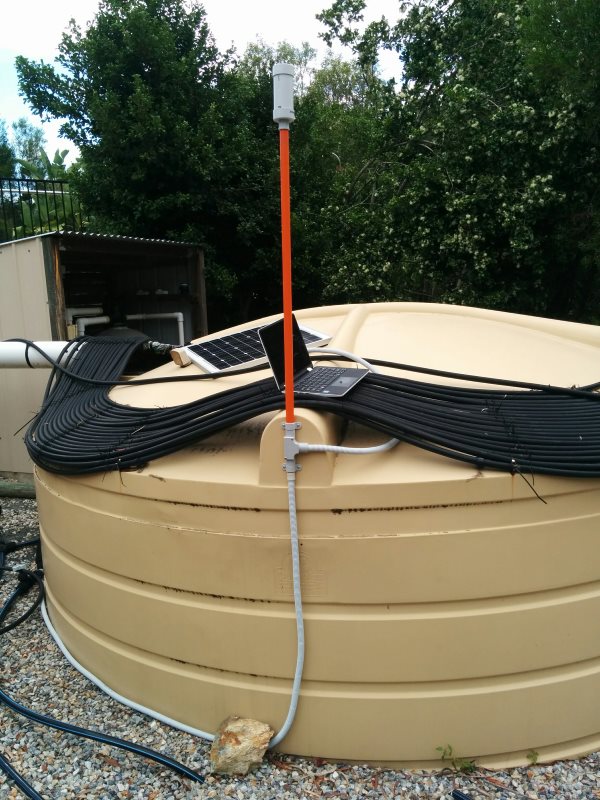
My poor old water tank is about to enter the 21st century!
@Boots33 I love this project! When I first got into MYS last year I was really keen to create a couple nodes like this but at the time it seemed too hard.
Now I can give it a go as your setup is very like mine. I really like the idea of using 50mm pvc for the enclosure.
I'm wondering if you might be able to post some more photos of the node mounted on the tank?
And where do you power it from? I take it the Flexi conduit going along the ground houses the power feed?
Brilliant!
-
@Boots33 I love this project! When I first got into MYS last year I was really keen to create a couple nodes like this but at the time it seemed too hard.
Now I can give it a go as your setup is very like mine. I really like the idea of using 50mm pvc for the enclosure.
I'm wondering if you might be able to post some more photos of the node mounted on the tank?
And where do you power it from? I take it the Flexi conduit going along the ground houses the power feed?
Brilliant!
@breimann Yes the conduit running along the ground contains the power cables for the node. My "pump shed" which has my pool filter pump as well as the pump for the tank is located right next to the tank.
At the moment I am running the node from a 9v power pack but am in the process of installing a battery and solar charger to the shed, this will then (hopefully) be used to power the node and other projects in the area.The pvc tube cases have been a real success for use in the yard. In our area we have some very active ant colonies and I soon learn't that if i didn't seal the cases well they became an extension of their nests almost overnight.
So I now use conduit whenever I can. It is fairly cheap when purchased from electrical wholesalers and also means you can use cable that is not uv resistant, this is usually a bit cheaper than cable meant for outdoors use.
I am away from home at the moment but will be back soon so i will take a few more pics of the sensor etc.
At this time the node is still working well and giving very stable readings. the tank has not been below 80% since the node was installed so still need to see how it goes as it gets a bit lower. We are heading into our dry season now so the next few months should see the level drop a bit as we rely on the water for our gardens and vegetable patches.
-
@breimann Yes the conduit running along the ground contains the power cables for the node. My "pump shed" which has my pool filter pump as well as the pump for the tank is located right next to the tank.
At the moment I am running the node from a 9v power pack but am in the process of installing a battery and solar charger to the shed, this will then (hopefully) be used to power the node and other projects in the area.The pvc tube cases have been a real success for use in the yard. In our area we have some very active ant colonies and I soon learn't that if i didn't seal the cases well they became an extension of their nests almost overnight.
So I now use conduit whenever I can. It is fairly cheap when purchased from electrical wholesalers and also means you can use cable that is not uv resistant, this is usually a bit cheaper than cable meant for outdoors use.
I am away from home at the moment but will be back soon so i will take a few more pics of the sensor etc.
At this time the node is still working well and giving very stable readings. the tank has not been below 80% since the node was installed so still need to see how it goes as it gets a bit lower. We are heading into our dry season now so the next few months should see the level drop a bit as we rely on the water for our gardens and vegetable patches.
-
@Boots33 Thanks for this information. Good idea re the flexi conduit and how it means you can use non uv resistant cable.
I look forward to some pics, particularly of the transducer assembly in terms of sealing that bit and fixing it to the tank.
@breimann The Transducer was pretty easy to mount and fit to the tank as it is already on a length of cable that unplugs from the main board.
I used 20mm electrical conduit parts in its construction.
The first step was to mount the transducer into a 20mm adaptor.
To do this I used a stepped drill bit to enlarge the adaptor so the transducer would fit in. You will need to drill on a very low speed and stop frequently otherwise the plastic tends to melt. The walls of the adaptor will be quite thin by the time it is large enough for a snug fit of the Transducer.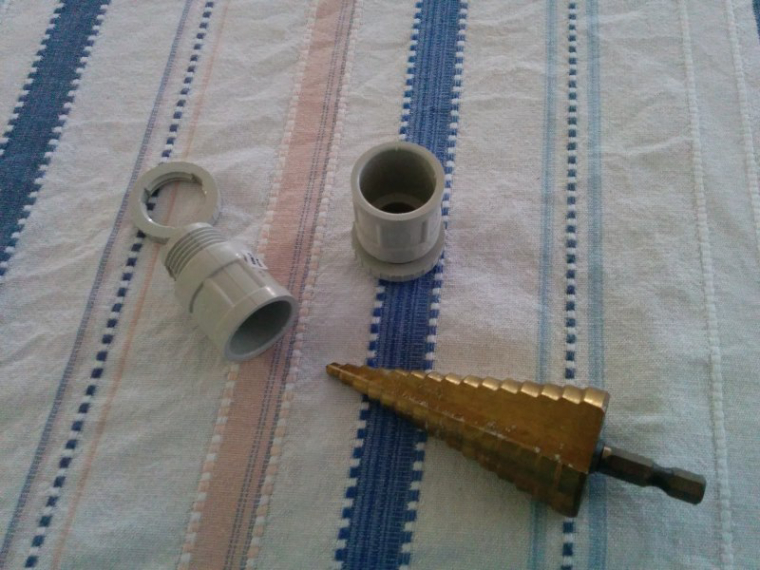
Then the transducer is fitted into the adaptor, even though it was a snug fit I still added some silicone sealant around it to seal out moisture and make sure it stays in place.
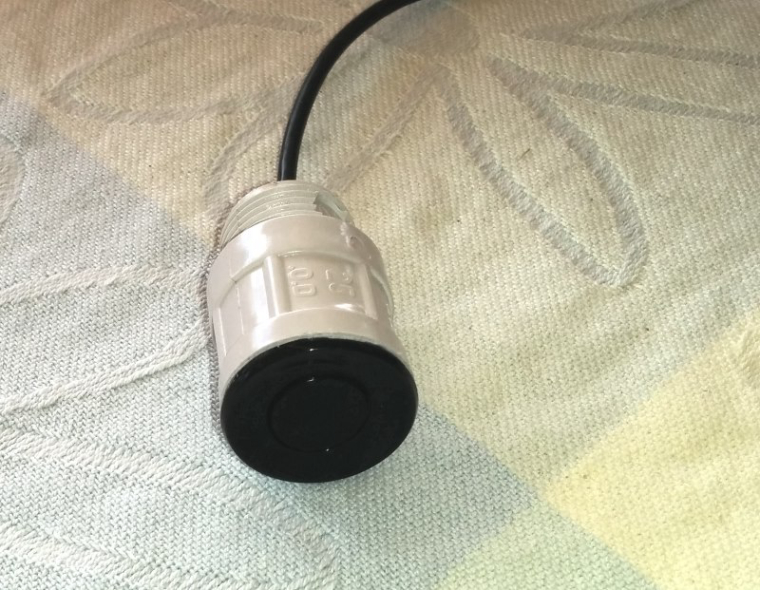
I then drilled a hole in the bottom of a 20mm round single entry junction box , mounted the adaptor and ran the wires through some conduit. The finished sensor looked like this.
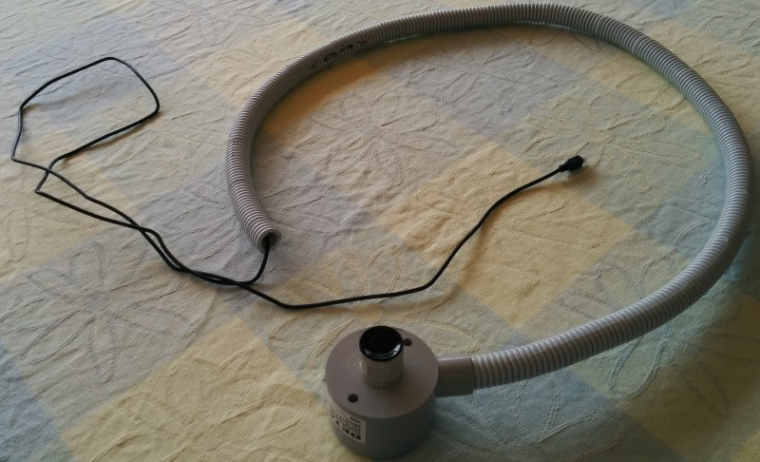
The transducer needed to be around 30cm above the full water line to get a stable reading so I had to mount it towards the centre of the tank. I used a 25mm hole saw to cut a hole in the tank and the sensor unit just slips right on in. I was going to silicone it in place but it is a neat fit and is working well so will probably just leave it as it is.
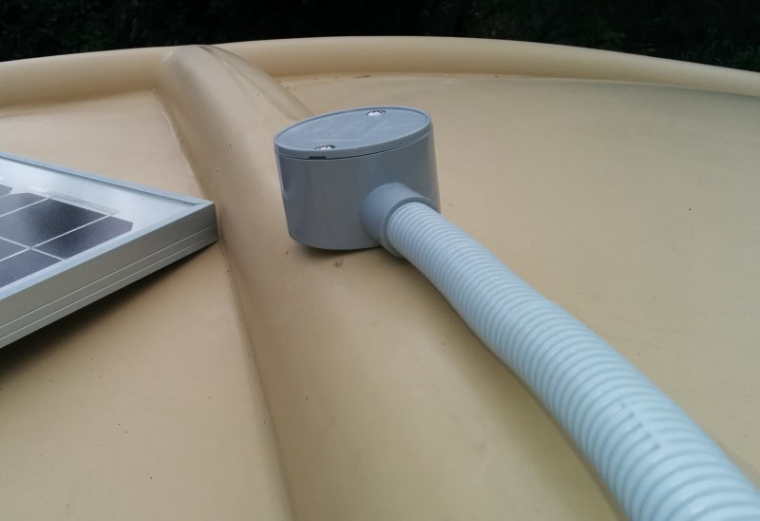
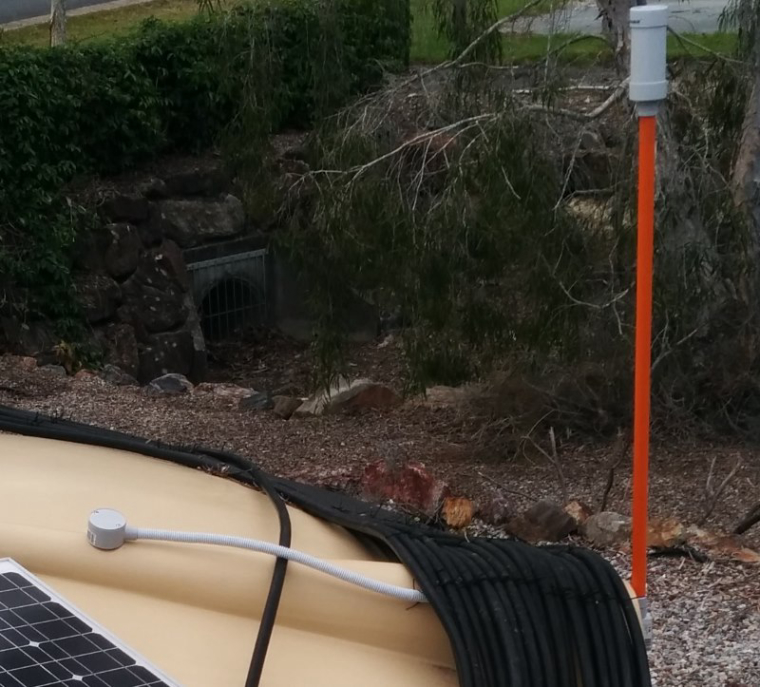
-
@Boots33 These photos are fantastic!
It looks like you have the same stepped drill bit as me!! :)
This is really helpful. Now i can start tracking down the bits i need, although i already have a couple of those exact sensors, some flexi conduit, and 240v by the tanks for my pump, which is good (although I'm off grid so the 240v is really just a BIG battery with inverter!).
Im thinking of running two sensors (one for each tank side by side) off the same node - what would be the pros and cons of that do you think?
Thanks again for the great pics. It seems much more doable now and i know what i need.
-
@Boots33 These photos are fantastic!
It looks like you have the same stepped drill bit as me!! :)
This is really helpful. Now i can start tracking down the bits i need, although i already have a couple of those exact sensors, some flexi conduit, and 240v by the tanks for my pump, which is good (although I'm off grid so the 240v is really just a BIG battery with inverter!).
Im thinking of running two sensors (one for each tank side by side) off the same node - what would be the pros and cons of that do you think?
Thanks again for the great pics. It seems much more doable now and i know what i need.
@breimann said in Round water tank level sensor:
It looks like you have the same stepped drill bit as me!! :)
I just love those stepped drill bits. makes it so easy to drill large holes in boxes etc.
Im thinking of running two sensors (one for each tank side by side) off the same node - what would be the pros and cons of that do you think?
I think that would be a good idea as long as the transducer leads are long enough to reach your node from both tanks. If you are not using the node as a repeater like I am you could also sleep the node between readings as well perhaps. The newping library can handle multiple transducers without any problems.
-
@Boots33 These photos are fantastic!
It looks like you have the same stepped drill bit as me!! :)
This is really helpful. Now i can start tracking down the bits i need, although i already have a couple of those exact sensors, some flexi conduit, and 240v by the tanks for my pump, which is good (although I'm off grid so the 240v is really just a BIG battery with inverter!).
Im thinking of running two sensors (one for each tank side by side) off the same node - what would be the pros and cons of that do you think?
Thanks again for the great pics. It seems much more doable now and i know what i need.
@breimann said in Round water tank level sensor:
(although I'm off grid so the 240v is really just a BIG battery with inverter!).
Wow, are you in a remote area or just off grid by choice?
-
@breimann said in Round water tank level sensor:
(although I'm off grid so the 240v is really just a BIG battery with inverter!).
Wow, are you in a remote area or just off grid by choice?
@Boots33 Off grid by choice... in country South Australia.
Yeah, i thought of the lead issue, but the tanks are fairly close together (less than a metre apart) so i might be able to pull it off... anyway, i want to finish a few nodes off for inside our "shouse" (we live in a shed), and i'm still trying to complete my Pump Controller node so we'll see how we go slowly collecting the parts.
-
@Boots33 Off grid by choice... in country South Australia.
Yeah, i thought of the lead issue, but the tanks are fairly close together (less than a metre apart) so i might be able to pull it off... anyway, i want to finish a few nodes off for inside our "shouse" (we live in a shed), and i'm still trying to complete my Pump Controller node so we'll see how we go slowly collecting the parts.
I am in South East Qld so in the same country at least :)
I remember the controller, that is the one you were going to use a ACS712 I think.
I did build a controller for my tank pump but it is just a simple on off node.
-
Awesome... i had a feeling you weren't too far away!
Nice to connect with someone in the same country. Yes, i still haven't gotten the ACS712 operational but have temporarily put the switch node in for the pump to turn it on and off.
I'm slowly creeping up on the ACS712 code. The latest i've gotten on that is going back over some of PeteB's projects in particular his Whole House Fan. -
I am in South East Qld so in the same country at least :)
I remember the controller, that is the one you were going to use a ACS712 I think.
I did build a controller for my tank pump but it is just a simple on off node.
@Boots33 I've been collecting some of the parts for this project. Just wanted to check something. I have a similar poly tank like yours, but is there an issue with mounting the transducer so it's not completely level as the roof slopes up?? Do you get what i mean?
-
@Boots33 I've been collecting some of the parts for this project. Just wanted to check something. I have a similar poly tank like yours, but is there an issue with mounting the transducer so it's not completely level as the roof slopes up?? Do you get what i mean?
@breimann My sensor is on a slight angle as well but in use so far it has not caused any problems. I still have not had the tank below 80% so it may still be an issue when the tank is near to empty. Originally I was just going to make a wedge out of a plastic door stop to level it up but will wait and see as it may just work ok as it is.
-
@breimann My sensor is on a slight angle as well but in use so far it has not caused any problems. I still have not had the tank below 80% so it may still be an issue when the tank is near to empty. Originally I was just going to make a wedge out of a plastic door stop to level it up but will wait and see as it may just work ok as it is.
@Boots33 Nice. Good thinking re the wedge. I was thinking some sort of angle type thingy to level it.
Just a question re your power supply. Once you got the node onto the 9v plug pack, did you find the sensor was ok being supplied with 5v from your Nano?
-
@Boots33 Nice. Good thinking re the wedge. I was thinking some sort of angle type thingy to level it.
Just a question re your power supply. Once you got the node onto the 9v plug pack, did you find the sensor was ok being supplied with 5v from your Nano?
@breimann yes the sensor has been very stable with 5v coming from the nano. I only experienced issues in the initial testing when I was powering the nano from my laptop usb. With the 9v supply to the nano V IN it is very good. I also use an minimum of 47uf for the nrf cap now as well.
-
@breimann yes the sensor has been very stable with 5v coming from the nano. I only experienced issues in the initial testing when I was powering the nano from my laptop usb. With the 9v supply to the nano V IN it is very good. I also use an minimum of 47uf for the nrf cap now as well.
-
very interesting and another Aussie, QLDer here
-
Hi there. I am currently making the exact same project using a RPi3 and a JSN-SR04T ultrasonic sensor. My tank is 2 meters tall and are currently having issues with the sensor giving echos off the side of the tank. Did you have any issues like this? Im a SE Qlder as well.
-
Hi there. I am currently making the exact same project using a RPi3 and a JSN-SR04T ultrasonic sensor. My tank is 2 meters tall and are currently having issues with the sensor giving echos off the side of the tank. Did you have any issues like this? Im a SE Qlder as well.
Hi @Denverado
It seems water tank projects are popular down under.
As to echo issues I have had no problems to date. I still have not had the tank bellow 80% though so can't yet tell if there may be issues. Ultrasonic sensors have been used commercially for tank level indicators so I think we should be ok.
As I noted in the first post a good 5v supply is essential for stable results. You could also have a look at this post it would seem that others have had some trouble with the JSN version as well.
Are you certain it is echo problems, what sort of readings are you getting? I know you can get sensors with a narrower beam but they usually cost a lot more too.
